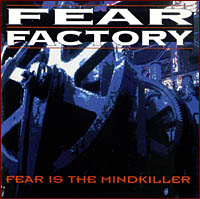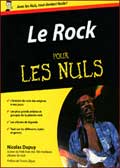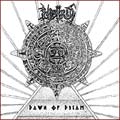FEAR FACTORY (usa) - Fear Is The Mindkiller (1993)

Label : Roadrunner Records
Sortie du Scud : 1993
Pays : Etats-Unis
Genre : Industriel
Type : EP
Playtime : 6 Titres - 32 Mins
Que DEPECHE MODE sorte un album de remixes, ça ne choquera personne. Mais qu'un groupe de Death Metal, même fortement influencé par la scène industrielle, commette pareille hérésie... Hum! Ils sont gentils les Death-métalleux mais s'agirait quand-même de pas trop les caresser à rebrousse-poil... "Même pas peur, on fait ce qu'on veut" semble clamer un FEAR FACTORY fermement décidé à se faire remarquer, un an après un premier album déjà très novateur. Et au cas où le message ne serait pas assez clair, l'EP en question affirme que la peur est l'ennemie de l'esprit... Un esprit qui devra être sacrément ouvert pour apprécier cette nouvelle expérience : en 1993 les fans de Metal extrême n'ont pas encore pris habitude d'user leurs Rangers sur les dancefloors. Leur baptême du feu risque d'être éprouvant. Les « suffer bastard » hurlés par Burton C. Bell sur le premier remix semblent d’ailleurs leur être ironiquement adressés. Heureusement, ce n’est pas le seul élément repris du « Martyr » original. Les riffs de guitare et de basse ont également été samplés et s’intègrent plutôt bien au gros beat Techno qui remplace la batterie de Raymond Herrera. Du PRODIGY avant l’heure en quelque sorte; pas désagréable comme entrée en matière. La greffe prend beaucoup moins bien sur « Self immolation » dont les 5 minutes 30 paraissent des heures et qui trahit complètement l’esprit de l’original. Au fait, j’espère que vous l’aimez ce titre, car vous n’avez pas fini d’en bouffer : l’EP se termine sur un deuxième remix très semblable au premier, puis la version album, sans doute pour nous permettre de mesurer l’étendue des dégâts. Des versions Indus assez réussies de « Scapegoat » et « Scumgrief » relèvent le niveau mais au final cet EP s’avère un peu léger. Cela n’aura pas échappé à Roadrunner Records qui décidera en 2004 de le retirer du marché pour l’intégrer en bonus à la réédition de Soul Of A New Machine. Fear Is The Mindkiller pourrait donc n’être qu’un élément très anecdotique dans la discographie du groupe. Pas tout à fait: il s’agit de sa première collaboration avec Rhys Fulber, claviériste de FRONT LINE ASSEMBLY, qui jouera un rôle déterminant dans l’évolution du son et de la carrière de FEAR FACTORY.
Ajouté : Lundi 13 Février 2012
Chroniqueur : Cyco_Nico
Score :   
Lien en relation: Fear Factory Website
Hits: 10246
|














